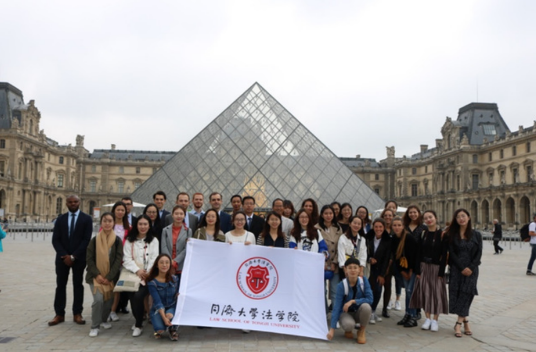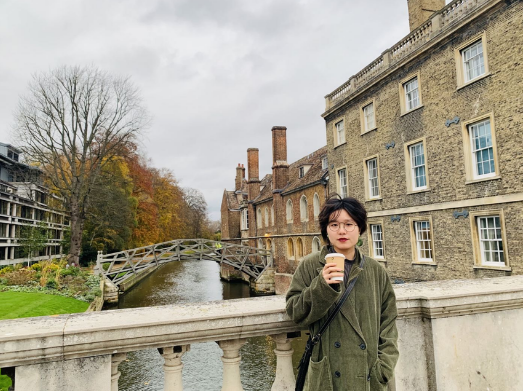1. Objectives
As the rule of law is an important symbol of the progress of human civilization, under the background of China's comprehensive rule of law, high-quality legal talents with both moral integrity and legal training will have a bright future.
Tongji Law School aims to cultivate all kinds of legal talents who serve national governance and market needs, including legal professionals such as legislators, judges, prosecutors, government enforcers, legal service talents such as lawyers, notaries, and in-house counsels, who are proficient in international law, foreign-related legal talents dealing with foreign-related legal affairs, and legal research talents engaged in law teaching and research.
2. Features and Advantages
Vocational Education. Tongji Law School is a national first-class undergraduate major construction site. Furthermore, Tongji Law School is selected as the first batch of "application-oriented compound excellent legal talent education and training base" and the first batch of "Shanghai excellent legal talent training base" and "Shanghai foreign-related outstanding legal talent training base". Tongji Law School adheres to the principle of cultivating people with morality and combining morality and law, focusing on cultivating professional quality of legal thinking, knowledge, skills and ethics, implementing interactive teaching and case teaching methods, attaching importance to legal competitions, and matching each undergraduate student with professional tutors.
International Education. Tongji Law School adheres to school's tradition of exchanges and cooperation with Germany (Europe). The teaching and research of German law and EU law are outstanding, and the training of foreign-related legal talents has obvious characteristics, and a multi-level international talent training model has been established. The college brings together a group of teachers who have studied in Germany and other European countries, and has one German teacher. It has established a long-term cooperation mechanism with many universities in Germany, France, Italy, Belgium and other countries to carry out mutual tuition-free learning and exchange activities. Since 2013, it has established a Sino-German double master's degree program with famous universities such as Humboldt University and Konstanz University in Germany.
Compound Education. Tongji Law School actively integrates into the school's disciplinary ecosystem, integrates with the school's advantageous disciplines, promotes the construction of "Law+" interdisciplinary disciplines, and carries out the training of compound talents. It shows distinctive characteristics in intellectual property law, engineering law, artificial intelligence law and other disciplines. Since 2014, it has jointly established the "Engineering (Civil Engineering)-Law Comprehensive Talent Training Innovation Experimental Zone" with the School of Civil Engineering; in 2021, it was approved as the "Shanghai Artificial Intelligence Social Governance Collaborative Innovation Center". The interdisciplinary talents cultivated by the college are well received by employers.
3. Professional Connotation
With the overall orientation of "cultivating social and professional elites who lead the future", Tongji Law School is committed to cultivating high-level outstanding legal talents with an international perspective. Tongji Law School implements a training system that combines general education and professional education. Undergraduates receive general education in the freshmen college in the first year, and then transfer to the law school for legal education from the second year.
Tongji Law School offers Introduction to President XI Jinping‘s Thought on the Rule of Law, Constitution, History of Chinese Legal System, Criminal Law, Civil Law, Criminal Procedure Law, Civil Procedure Law, Administrative Law and Administrative Procedure Law, International Law, Legal Professional Ethics, Economic Law, Intellectual Property Law, Commercial Law, Private International Law , International Economic Law, Environmental Resource Law, Labor and Social Security Law and other courses, as well as optional courses such as Network and Information Law, Roman Law, Construction Law, and German Legal System.
4. Faculty
There are 57 faculty members, including 13 professors, 19 associate professors, 15 assistant professors, 11 doctoral supervisors and 37 master supervisors. 85% of the professional teachers of Tongji Law School have achieved doctoral degrees from well-known universities at home and abroad, and some of them graduated from well-known overseas universities such as Germany, Japan, Italy, and Hong Kong SAR. In addition, Tongji Law School has hired a full-time German lecturer, Dr. Peter Ganea, to teach German law in German as well.
Besides, Tongji Law School has also hired a group of senior professors which are judges, prosecutors, famous lawyers, and in-house counsels of giant companies with profound practical experience as adjunct professors and practical tutors to jointly participate in talent training. At the same time, Tongji Law School invites well-known experts and scholars from home and abroad to give short-term lectures every year to provide students with cutting-edge courses.
5. Research Platform
Tongji Law School has a resourceful teaching and research support platform. The provincial and ministerial-level base "Shanghai Artificial Intelligence Social Governance Collaborative Innovation Center" led by Tongji Law School provides a foundation for the interdisciplinary research and teaching of "artificial intelligence+law". Tongji Law School has built Xi Jinping Thought of Legal Thought Research Center, Legal Philosophy Research Center, Sino-German Institute of International Economic Law, Intellectual Property and Competition Law Research Center, Criminal Law Research Center, Internet and Artificial Intelligence Law Research Center, Urban Law Research Center and the Diversified Dispute Resolution and Rule of Law Research Center, these institutions provide resourceful support for students' study and scientific research.
6. Cultivation Features
Since 2014, Tongji Law School has set up the "Engineering (Civil)-Law Combined Talents Training Innovation Experimental Zone". The Law School and the Civil Engineering School cooperate to cultivate interdisciplinary talents. In 2020, the talent training model of this innovative experimental zone was awarded the Teaching Achievement Award by Tongji University. Based on that, Tongji Law School has cooperated with the School of Civil Engineering to launch a double degree program of "Civil-Law". Tongji Law School has also set up a legal micro-major for other students in the university, which has seen a boost in popularity among students of other majors.
In addition, Tongji Law School actively promotes learning through competitions, and cultivates talents through legal competitions. Under the guidance of professional teachers, students carry out self-study, self-solve problems, and improve the ability of literature retrieval, document writing, language expression, and unity and cooperation. In recent years, law students have won the championship of the International Humanitarian Law Moot Court Competition, and have participated in international and national academic competitions such as the "CIETAC Cup" International Commercial Arbitration Moot Court Debate Competition, the International Criminal Court Moot Court Competition, and the Shanghai University Student Moot Court Competition, in which students has repeatedly achieved great results and won the championship, first prize or the best individual award in a row.

7. International Corporation
Tongji Law School shows a profound tradition of international corporation. When the Tongji Law School was established in 1945, it offered courses with reference to the German legal education system. Tongji Law School attaches great importance to broadening the students' international vision. Relying on the school's global inter-school alliance resources and the its foreign cooperation colleges and universities, a multi-level foreign-related legal talent training system has been established. A Sino-German double master's degree program has been established with Humboldt University and Konstanz University in Germany. The English-language master's program "Chinese Law and State Governance" has been set up. It has carried out mutual tuition-free credit recognition projects with famous universities such as Humboldt University of Germany, University of Heidelberg, University of Bonn, University of Cologne, University of Ghent in Belgium, Sorbonne University in France, and University of Florence in Italy. Tongji Law School has also organized summer camps with overseas partner universities and participate in international academic forums abroad. Undergraduate students have the opportunity to study and exchange abroad through credit mutual recognition programs and summer camps during their studies, and post-graduate students are able to participate in the Sino-German dual master's degree program.

8. School-enterprise Cooperation
Tongji Law School has established a wealth of cooperation with practical departments, and jointly launched the "Cooperative Training Program for Outstanding Legal Talents". Currently, Tongji Law School cooperates with Shanghai First Intermediate People’s Court, Second Intermediate People’s Court, Yangpu District People’s Court, Huangpu District People’s Court, Jing'an District People’s Court, Hongkou District People’s Court and other people's courts, W&H, JT&N and other well-known law firms, Shanghai Construction Group(SCG) and other large-scale enterprises have established social practical bases to jointly carry out scientific research and talent training courses.
9. Practical Innovation
Tongji Law School attaches great importance to the improvement of students' practical ability. It has a legal practice center and a legal education laboratory, and offers legal training courses such as moot courts, case studies, legal clinics, debate and negotiation, and actively carries out experiential teaching. Besides, Tongji Law School employs experienced and senior judges, prosecutors, lawyers to teach students, and has established various types of social practical bases for conducting practical training course.
10. Development After Graduation
Tongji Law School graduates are highly competitive who are well-received by employers and have a good social reputation. In recent years, the average employment rate has remained above 99%. Most of graduates chose further studies at home and abroad, to work in the party and government department, public security and legal systems, well-known law firms and domestic and foreign companies.
About 60% of undergraduate graduates chose to further study at Cambridge University, London School of Economics, Northwestern University, Washington University, Emory University, Tokyo University, National University of Singapore, Peking University, Renmin University of China, Fudan University, Shanghai Jiaotong University, Nanjing University and other well-known universities for their master's degree.

11. About Tongji Law School
Tongji University is a famous university with a long history of over 100 years. It is the same to legal education of Tongji University. As early as 1914, there were law and political students transferred from Qingdao Special Higher Education School. In 1945, Tongji University formally established the Law School which was known for its research and teaching of civil law. It brought together a group of well-known domestic experts such as Hu Yuanyi, Xu Daolin, Zhang Qitai, Chen Shengqing, Xie Huaishi, etc. The highly respected international jurist Ni Zhengyu also worked in Tongji, and German scholars such as Bünger and Lorentz taught in Tongji Law School. In March 1949, the first student of TJLS graduated, who were the first and the only one group of students with liberal arts degree of Tongji University before the founding of New China. In September 1949, TJLS was merged into Fudan University due to the adjustment of faculties nationwide, and the legal education of Tongji University was temporarily suspended.
In January 1993, Tongji University restored the establishment of the Faculty of Arts and Law; in 1994, the Department of Law was restored and the law majors were recruited in that year. In 1998, it cooperated with the German Academic Exchange Center (DAAD) to establish the Department of Economic Law in the Sino-German College of Tongji University; in 2003, the School of Intellectual Property was established. In 2009, Tongji University integrated all the resources of various departments and resumed the establishment of law school.
In the course of running a school for nearly one hundred years, Tongji University’s legal education has always adhered to the school motto of “Row together for the same goal”, and adhered to the responsibility of “With one heart, with one dream and with the same future. For the people, for whole world and for the same planet.” Social services, cultural inheritance and innovation, international exchanges and cooperation are developed in a balanced manner, which enables its comprehensive strength to be ranked among top universities in China.
12. Contact
Website: https://law.tongji.edu.cn/
Email: ark@tongji.edu.cn
Tel: 021-65980614 (鲍老师)
College WeChat public account QR code:
